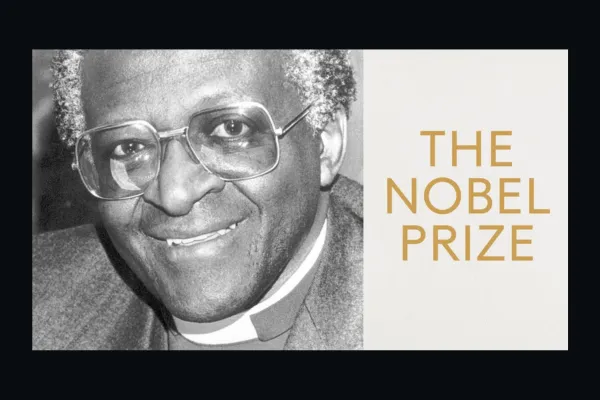
Invite Chip to speak at your next event.

Leadership Lessons

The Path to Peace: Lessons from Desmond Tutu on Conflict Resolution
“If you want peace, you don't talk to your friends, you talk to your enemies.” - Desmond Tutu
Introduction:
In the fast-paced world of leadership, conflicts are bound to arise. Yet, far from being obstacles, conflicts present us with opportunities for growth, understanding, and ultimately, peacemaking. This week, we delve into the timeless wisdom of scripture and the profound influence of Desmond Tutu to explore the principles of conflict resolution and peacemaking.
At the heart of our discussion lies Matthew 5:9, where Jesus declares, "Blessed are the peacemakers, for they will be called children of God." These words remind us of the divine calling to be agents of peace in a world often marred by discord and division.
Desmond Tutu, a beacon of hope in the struggle against apartheid in South Africa, exemplifies the transformative power of peacemaking. His unwavering commitment to reconciliation and forgiveness serves as a testament to the profound impact of resolving conflicts with grace and compassion.
So, how can we apply these principles in our leadership journey?
First and foremost, we must embrace empathy and understanding. Conflict often stems from misunderstandings or differing perspectives. By cultivating empathy and seeking to understand the root causes of conflict, we can foster a culture of mutual respect and empathy.
Secondly, effective communication lies at the heart of conflict resolution. Open, honest dialogue creates a space for reconciliation and healing. By actively listening to all parties involved and working towards finding common ground, we can navigate conflicts with integrity and grace.
Finally, we must cultivate a culture of forgiveness and reconciliation. True leadership is not defined by the absence of conflict but by how we navigate and resolve it. By fostering a culture where forgiveness is valued and reconciliation is seen as a pathway to growth, we can create environments conducive to peace and harmony.
In conclusion, conflicts are not to be feared but embraced as opportunities for growth and peacemaking. As leaders, let us heed the words of Jesus in Matthew 5:9 and follow in the footsteps of Desmond Tutu, striving to be agents of reconciliation and peace in our communities and beyond.
Donor Development

The Path to Peace: Lessons from Desmond Tutu on Conflict Resolution
“If you want peace, you don't talk to your friends, you talk to your enemies.” - Desmond Tutu
Introduction:
In the fast-paced world of leadership, conflicts are bound to arise. Yet, far from being obstacles, conflicts present us with opportunities for growth, understanding, and ultimately, peacemaking. This week, we delve into the timeless wisdom of scripture and the profound influence of Desmond Tutu to explore the principles of conflict resolution and peacemaking.
At the heart of our discussion lies Matthew 5:9, where Jesus declares, "Blessed are the peacemakers, for they will be called children of God." These words remind us of the divine calling to be agents of peace in a world often marred by discord and division.
Desmond Tutu, a beacon of hope in the struggle against apartheid in South Africa, exemplifies the transformative power of peacemaking. His unwavering commitment to reconciliation and forgiveness serves as a testament to the profound impact of resolving conflicts with grace and compassion.
So, how can we apply these principles in our leadership journey?
First and foremost, we must embrace empathy and understanding. Conflict often stems from misunderstandings or differing perspectives. By cultivating empathy and seeking to understand the root causes of conflict, we can foster a culture of mutual respect and empathy.
Secondly, effective communication lies at the heart of conflict resolution. Open, honest dialogue creates a space for reconciliation and healing. By actively listening to all parties involved and working towards finding common ground, we can navigate conflicts with integrity and grace.
Finally, we must cultivate a culture of forgiveness and reconciliation. True leadership is not defined by the absence of conflict but by how we navigate and resolve it. By fostering a culture where forgiveness is valued and reconciliation is seen as a pathway to growth, we can create environments conducive to peace and harmony.
In conclusion, conflicts are not to be feared but embraced as opportunities for growth and peacemaking. As leaders, let us heed the words of Jesus in Matthew 5:9 and follow in the footsteps of Desmond Tutu, striving to be agents of reconciliation and peace in our communities and beyond.
Devotionals

The Path to Peace: Lessons from Desmond Tutu on Conflict Resolution
“If you want peace, you don't talk to your friends, you talk to your enemies.” - Desmond Tutu
Introduction:
In the fast-paced world of leadership, conflicts are bound to arise. Yet, far from being obstacles, conflicts present us with opportunities for growth, understanding, and ultimately, peacemaking. This week, we delve into the timeless wisdom of scripture and the profound influence of Desmond Tutu to explore the principles of conflict resolution and peacemaking.
At the heart of our discussion lies Matthew 5:9, where Jesus declares, "Blessed are the peacemakers, for they will be called children of God." These words remind us of the divine calling to be agents of peace in a world often marred by discord and division.
Desmond Tutu, a beacon of hope in the struggle against apartheid in South Africa, exemplifies the transformative power of peacemaking. His unwavering commitment to reconciliation and forgiveness serves as a testament to the profound impact of resolving conflicts with grace and compassion.
So, how can we apply these principles in our leadership journey?
First and foremost, we must embrace empathy and understanding. Conflict often stems from misunderstandings or differing perspectives. By cultivating empathy and seeking to understand the root causes of conflict, we can foster a culture of mutual respect and empathy.
Secondly, effective communication lies at the heart of conflict resolution. Open, honest dialogue creates a space for reconciliation and healing. By actively listening to all parties involved and working towards finding common ground, we can navigate conflicts with integrity and grace.
Finally, we must cultivate a culture of forgiveness and reconciliation. True leadership is not defined by the absence of conflict but by how we navigate and resolve it. By fostering a culture where forgiveness is valued and reconciliation is seen as a pathway to growth, we can create environments conducive to peace and harmony.
In conclusion, conflicts are not to be feared but embraced as opportunities for growth and peacemaking. As leaders, let us heed the words of Jesus in Matthew 5:9 and follow in the footsteps of Desmond Tutu, striving to be agents of reconciliation and peace in our communities and beyond.
